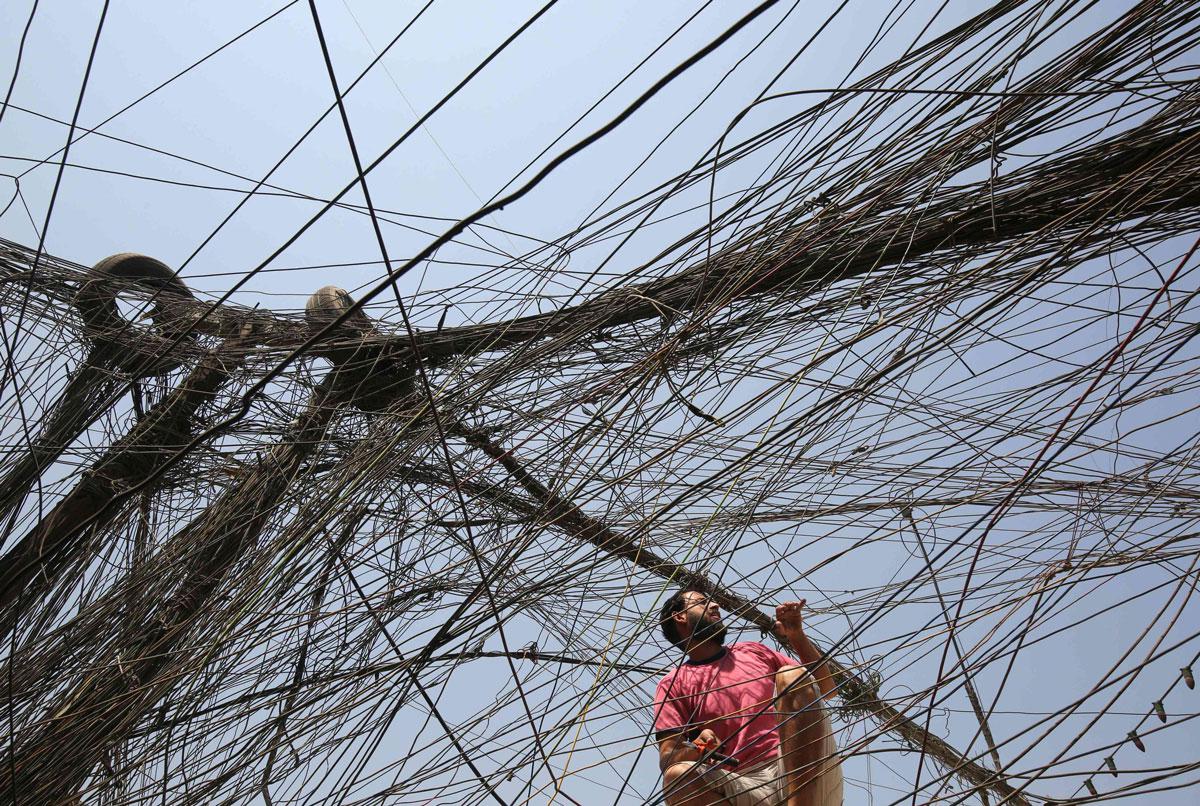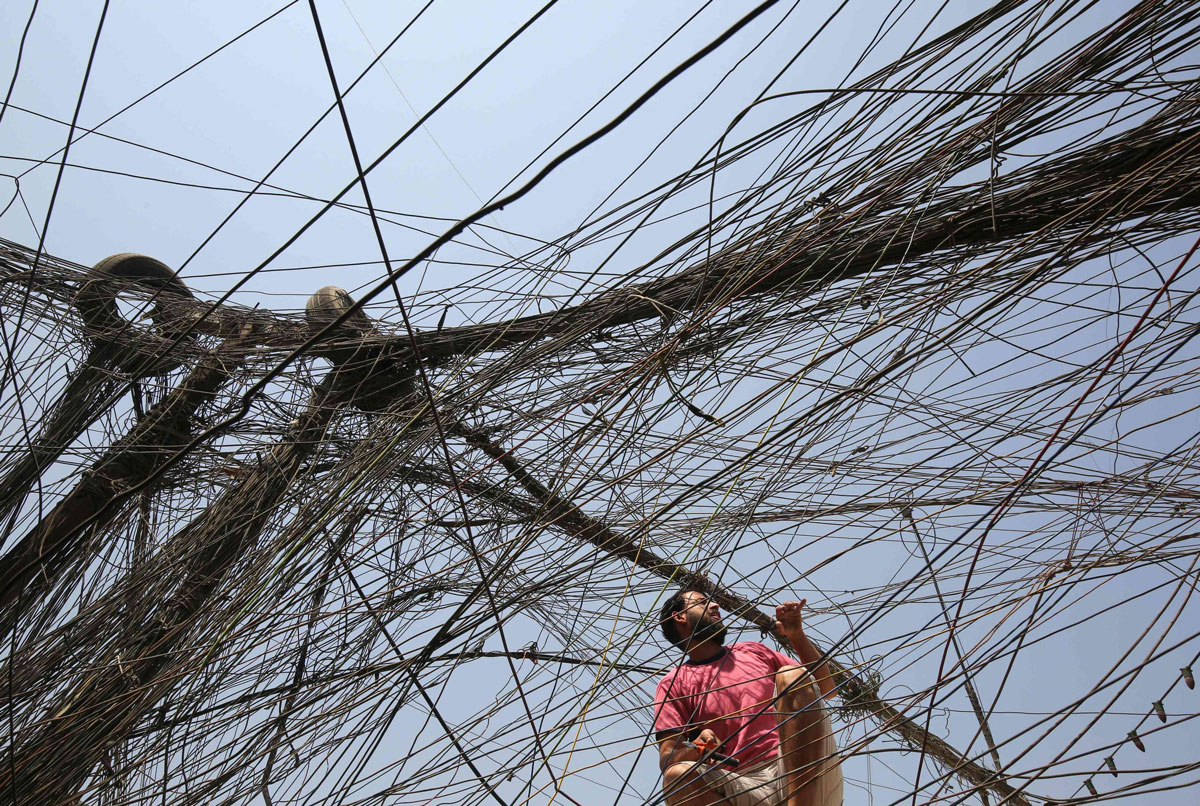Patronage system, a source of Iraq’s many woes
Since the toppling of Saddam Hussein following the US-led invasion of Iraq in 2003, people had hoped the new political system would provide stability and security, revive the economy and deliver public services.
Instead, Iraqis have had to reckon with many woes, including limited water supplies, power shortages and unemployment. The most problematic issue that Iraqis have had to face throughout the years, however, would be rampant corruption.
Although corruption existed during Saddam’s regime, including through the sale of Iraqi oil to fund the Oil-for-Food programme, Iraq’s post-2003 political system, also known as the Muhasasa Ta’ifia (sectarian appointment system), has failed to end or even ease its spread.
Instead, the elite pact part of the Muhasasa Ta’ifia has encouraged the growth of corruption within Iraqi society.
One of the key corruption grievances among the Iraqi population, for example, is that the Muhasasa Ta’ifia has come to represent a patronage system in which loyalty to a political party is the only way to secure governmental jobs.
Toby Dodge, professor in the International Relations department at the London School of Economics and Political Science, noted that, rather than choosing candidates based on their skills, expertise and merit, ministers have taken advantage of the system by expanding government payrolls to benefit party associates.
Before touching on other issues raised during the 2019 protests, it is important to look at key historical and political facts.
Saddam had ruled with an iron fist. Following the downfall of his Ba’athist regime in 2003, the Iraqi political field, with the help of the United States and its coalition allies, saw the introduction of the Coalition Provisional Authority (CPA) and Iraqi Governing Council.
A variety of political parties were given the authority to govern Iraq on a power-sharing basis. The parties, some of which were shunned by Saddam’s leading Ba’ath Party, include the Kurdistan Democratic Party, the Patriotic Union of Kurdistan, the Iraqi National Council, the Supreme Council for Islamic Revolution in Iraq, the Dawa Islamic Party and the Iraqi Islamic Party.
Paul Bremer, as head of the CPA, instigated two orders to deal with Iraq’s post-settlement governance that were to have fateful consequences for Iraq’s future.
The first order was to dissolve the Ba’ath Party. So-called “de-Ba’athification” as an attempt to ban all Ba’ath members above a certain societal rank from holding a position in the public services was also put in place.
The second order had more of an emphasis on dismantling the Iraqi Army and the security apparatus of the Ba’athist regime. This form of exclusion was like the de-Nazification, in which Nazi ideology and authority were to be removed from all forms of public life in Germany. In the long run, de-Nazification positively altered German education, as well as society at large.
De-Ba’athification and the dissolution of Iraq’s armed forces, however, saw more negative than positive outcomes. An insurgency was fuelled and the insurgents who took part in the brutal and bloody fighting post-2003 Iraq joined the Islamic State.
Although the Islamic State was defeated in 2018 and the group’s activities in Iraq have died out, the Muhasasa Ta’ifia system still has a long way to go until stability in Iraq can be fully achieved. A change of governance seems like the only option to ensure this goal. However, changes to governance have proven futile in the past.
Despite promises, former prime ministers, such as Nuri al-Maliki and Haider al-Abadi, failed to govern the people of Iraq correctly and, as a result, a vast number of protests took place during their time in office.
Aside from corruption, Iraqi people took to the streets beginning September 30 to protest the lack of public services and unemployment. World Bank statistical data show that 17% of men and 27% of women are unemployed.
That number may be a surprise, especially when compared to the Iraqi Bureau of Statistics, which stated that women constituted about 28.5% of those in the education sector, 31% of the medical profession, 25% of lab technicians, 15% of accountants and 15% of civil servants in 1976.
In a distressed and disheartened tone, an Iraqi in London, asking to remain anonymous, mentioned in a telephone interview that “in Iraq, there have been no new drugs authorised to treat brain cancer in adults or children for 20 years. I cannot believe that we live in the 21st century and cancer patients, particularly patients suffering from brain tumours, must travel outside of their country of origin to be treated. The new political system has proven to be futile.”
The protests have shown that the Muhasasa Ta’ifia system has not benefited the Iraqi people in any way. The existing government failed to govern the Iraqi people and strengthen Iraq’s post-2003 state-building process. Iraqi people have simply had enough of living in a country that has been falsely advised by external actors, suffered terror, instability and greed and seen promises repeatedly broken.
Enough is enough and the time for the Iraqi people to rise once more has come.
Zainab Mehdi is an editorial intern for The Arab Weekly, where this article was originally published.



